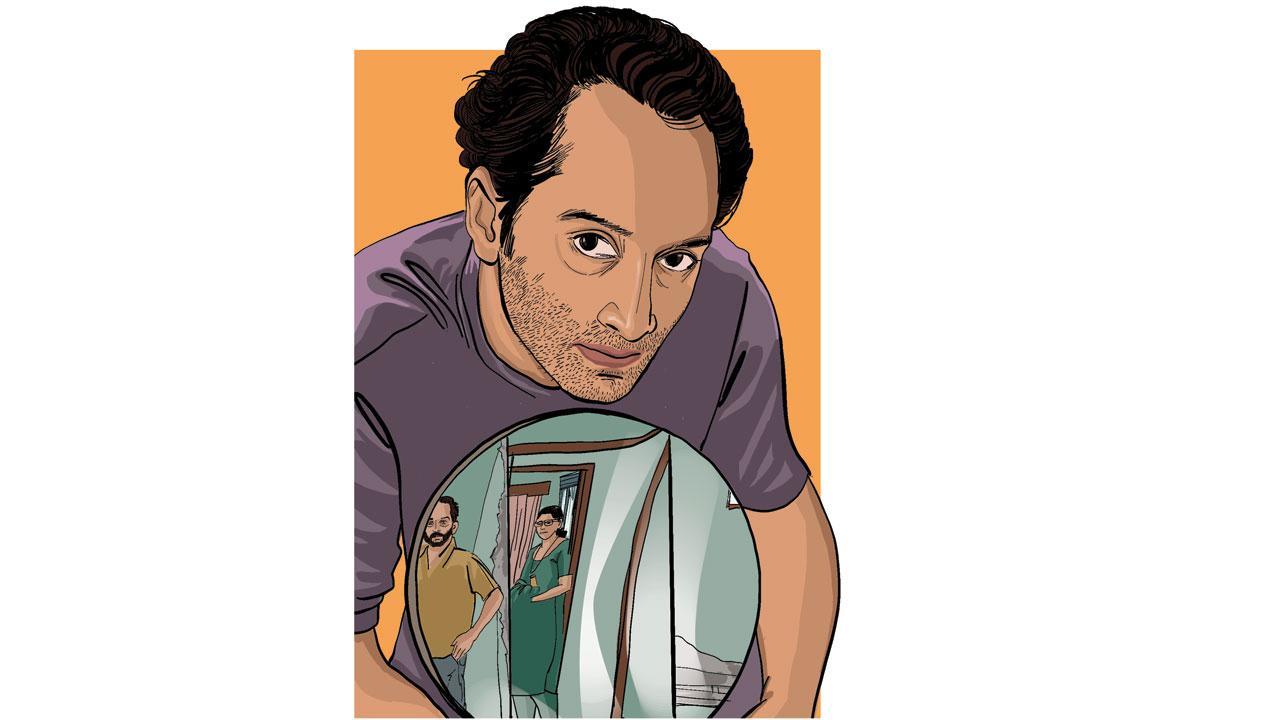The original Macbeth, a tale of ambition and guilt, is of Scottish General Macbeth who, primarily driven by Lady Macbeth, commits several murders in order to become King of Scotland

Illustration/Uday Mohite
Dileesh Pothan’s Joji (Malayalam, Amazon Prime Video) is a superb reworking of Shakespeare’s Macbeth. We already have Maqbool, among Vishal Bhardwaj’s finest films, and Jayaraj’s opulent Veeram (Malayalam), starring Kunal Kapoor, that used kalaripayattu. Joji is a stripped-down Macbeth, whose alchemy is significantly, but convincingly, altered. Its authoritarian patriarch reminds you of Bhaskar Patelar in Adoor Gopalakrishnan’s powerful Vidheyan (The Servile, 1994), starring Mammootty. Above all, Joji is Macbeth in the time of Covid-19, whose elements are integrated into the story.
The original Macbeth, a tale of ambition and guilt, is of Scottish General Macbeth who, primarily driven by Lady Macbeth, commits several murders in order to become King of Scotland. Joji is more a reflection on the cyclical nature and inheritance of pathological violence and authoritarianism between generations: Joji becomes like the man he detests the most, his father. Written by the brilliant Syam Pushkaran (Maheshinte Prathikaaram/Mahesh’s Revenge, Thondimuthalam Driksakshiyum/ The Exhibit and the Witness, Kumbalangi Nights), Joji is engrossing, even as it becomes a game of observing its departures from Macbeth. There are no witches’ prophesies, nor Birnam Wood, nor military conquests; Lady Macbeth is not the prime antagonist. Joji (Fahadh Faasil) is not a general, but one of three sons of Kuttapan Panachel (PN Sunny), along with Jomon (Baburaj) and Jaison (Joji Mundakayam). *Spoiler alert: All three are after the property of their bed-ridden dad, a terrorising patriarch, so the slew of murders are driven by greed and an anxiety not to get caught, not ambition or guilt. *Spoiler ends. Joji is Macbeth and Lady Macbeth rolled into one; prime antagonist Lady Macbeth (Bincy, Unnimaya Prasad) is here more as a conniving sister-in-law, not his wife, but Jaison’s.
Kuttapan Panachel, owner of a large rubber estate, rules his three adult sons with an iron fist; once nearly suffocating Joji on mere suspicion that he has swindled some money. None of the three loutish sons seem to earn a living, preferring to humiliate themselves living off him. When dad has a stroke, the three are unable to conceal their greed for his property. Heated arguments precipitate Joji’s killing spree, but there’s a clever twist in the climax that turns this tragedy into an ironic tragicomedy.
Director-actor Dileesh Pothan, who earlier directed Maheshinte Prathikaaram and Thondimuthalam Driksakshiyum, raises the artistic bar: his earlier films were earthy and delightful; this one is artistically more impressive and atmospheric. Macbeth was a nobleman we empathise with; here Pothan makes it difficult for you to like Joji, an unreliable guy who turns killer. Faasil plays Joji brilliantly, impeccably combining a slouchy body language with coiled rage. With his dramatic weight loss, he looks like a gaunt stripling in tees and capris, revealing a fragility behind the pathology. He is among India’s finest actors, with a remarkable range from Annayum Rasoolum, Kumbalangi Nights and Super Deluxe to Maheshinte Prathikaaram and Thondimuthalam Driksakshiyum; Joji is his third collaboration with Pothan.
The screenplay finely observes the mechanics of would-be inheritors: diffidently asking if they can sign cheques for dad, or worrying how to manage OTPs on dad’s phone. Pothan also exquisitely defuses dramatic scenes: when Bincy eggs on Joji, who wants to sell the house: “It’s your house too. Whose permission are you waiting for?” she is cleaning fish at a pond. And there’s Pushkaran’s delightful trademark wit: When dad has collapsed from a stroke, Joji still says, from old habit, “Dad, I’m taking the car keys,” before driving him to hospital.
Shyju Khalid’s cinematography is expansive in capturing the hilly rubber estate, and intimate in capturing nuances of mixed emotions and body language. Kiran Das’ editing is precise. Minor characters are finely etched with masterly haiku-like, portentous strokes: a teenager points a gun at a horse while taking a selfie with it. A power-drunk priest (Basil Joseph) is snubbed at a funeral, where people wear Covid-era masks. The ensemble cast is marvellous. Justin Varghese’s music uses the Sofia Session Orchestra and Choir and a piano to telling effect, and Ganesh Marar’s sound design is meticulous.
One of the reasons I adore Kerala is, alongside the Fa-Fa (Fahadh Faasil) fan clubs, writers like Syam Pushkaran and cinematographers like Shyju Khalid get top billing in posters, alongside the stars. Nowhere else in India. Salute!
Meenakshi Shedde is India and South Asia Delegate to the Berlin International Film Festival, National Award-winning critic, curator to festivals worldwide and journalist. Reach her at meenakshi.shedde@mid-day.com
 Subscribe today by clicking the link and stay updated with the latest news!" Click here!
Subscribe today by clicking the link and stay updated with the latest news!" Click here!







